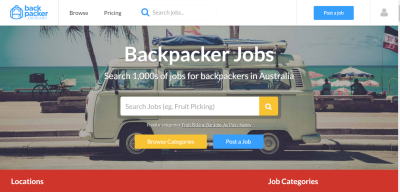
Having just arrived in Australia as an international student can be daunting enough. Finding a job is even harder. At least I found it really hard. I didn't know where to start. I had no idea how to apply. And I was worried that my English wasn't good enough. Here are the 9 things I learned.
# 1 Start at Home
Not all but most jobs in Australia require previous experience. But how do you get experience? Start at home before you leave. At home you speak the language. You know your way around. You are part of the culture. I did this. I worked as a piano teacher in Korea before coming to Australia. Being able to say that I already had experience made it so much easier.

# 2 Get Real
Look for jobs that suit your skills and personality and you might enjoy. I first made this mistake. I looked for jobs in cafes, restaurants and shops. But my passion is music. I didn't realise that I could just follow my passion. So I spent a long time applying for jobs I wasn't really interested in.

# 3 Do a Course
For some jobs you need to do a course before employers will consider your application. This sounds daunting, but the courses listed below only take 1 to 2 days to complete. Some you can do online. Having a relevant certificate will make it easier to stand out - Barista Certificate - RSA Certificate - Safe Food Handling Certificate - White Card - Blue Card

# 4 Avoid the Crowds
Avoid a big crowd of people searching for the same jobs as you do. Some areas got many backpacker hostels and student accommodation. It can be really tough there to find typical student and backpacker jobs. I found it much easier to find a job in Canberra than in Melbourne.

# 5 Prepare a CV
CV stands for Curriculum Vitae. US Americans and a few others call this a resume. Stick to one page in A4, list your Australian address and phone number, visa and how long you are staying. And then list your most current experience first and go back in time.

# 6 Search Online
Gumtree and Backpacker Jobboard are great websites to find casual work. SEEK is the place to find skilled job positions when you already got some qualifications. And needu and Jobsearch have all sorts of jobs including farm work. And then there are job search engines like indeed and adzuna as well. And check out your ethnic networks. Koreans in Melbourne for example use Hojubada. And I found my job in a Sydney sushi restaurant on Hojunarawhich is a great website for Koreans in Sydney.

# 7 Walk In
Many places never advertise and just hire walk ins. So print your CV and visit cafes, restaurants and shops you would like to work in. Sometimes you are lucky and they offer you a trial straight away, but in most cases they first say No. This is the hardest bit of your job hunt. It really takes courage to walk in and offer yourself. I handed out hundred CVs over two full months and was turned down every time. It was really tough. But then by chance I visited a few music schools and offered to give piano lessons. And they all said yes. It was a wonderful feeling.

# 8 Go Back
Do the same round one week later. Go back to all the places that seemed interested but just weren't ready right then. Going back gives you the greatest chance of success. You show that you are keen and really want to work there. It makes you stand out. And it gives the business a chance to think about you. So do go back.

# 9 Do a Trial
Being offered a trial is a huge success. It means the employer will seriously consider you. The sushi restaurant in Paddington where I worked trained me for two weeks while I got paid. But it doesn't always work out. In Canberra for example I started working at a juice bar, was too slow and didn't get the job. But that was a blessing in disguise. I found something much better - teaching piano.

Don't feel shy about your English. It probably is much better than you think. And don't take it personal when you get turned down again and again. Job hunting is tough for all of us.
Nice post!
ReplyDeleteAustralia welcomes immigrants. About a third of the population here are immigrants, and one in five has immigrated to Australia over the past seven years. People of different cultures come here from all over the world, so it is easy to become "at home" here.